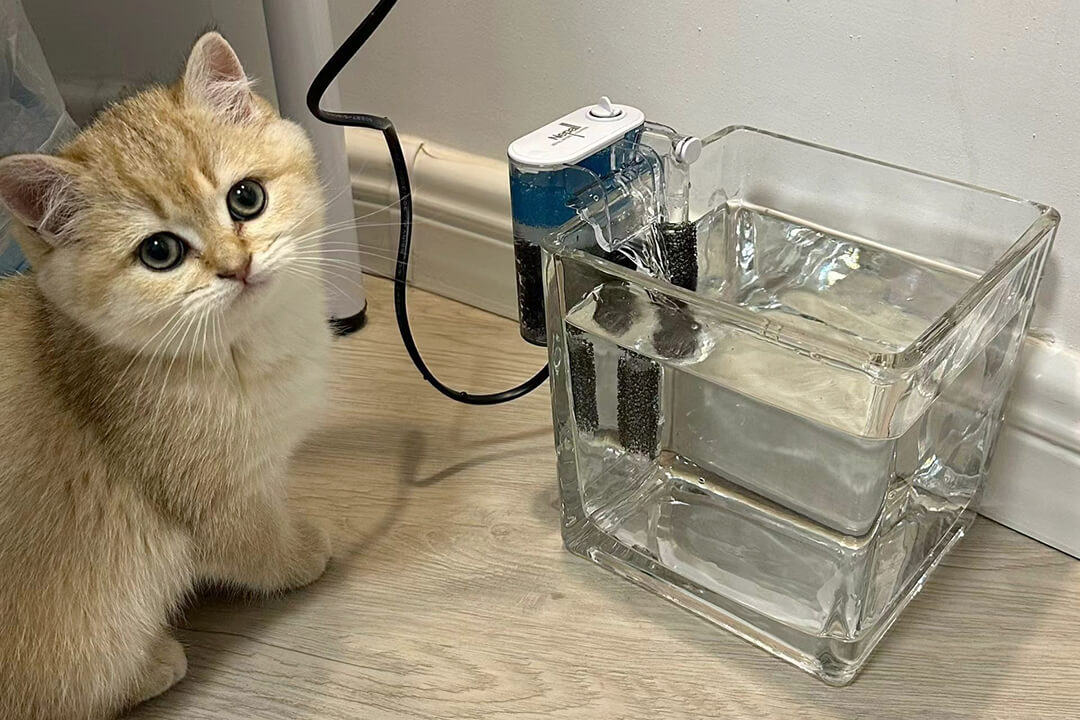In the realm of pet care, clean water is crucial for the health of our furry cat friends. This holds especially true for feline companions, as they tend to be quite discerning about the quality of their water.
With the continuous evolution of the pet products market, various filters tailored for cat drinking water have emerged. However, some cat owners might wonder: can a fish tank filter be repurposed as a water filter for cats? This article will delve into this question and offer expert advice.
The Role Of A Fish Tank Filter
Firstly, let’s grasp the basic functions of a fish tank filter.
Fish tank filters primarily serve to eliminate physical impurities in the water, such as fish waste and leftover food.
Additionally, they aid in removing chemical impurities like ammonia and nitrites, which can be harmful to fish.
Moreover, fish tank filters also provide a conducive environment for beneficial nitrifying bacteria by offering appropriate water flow and oxygen. These bacteria further break down harmful substances.
Cat’s Water Needs
The water requirements of cats differ from those of fish.
Cats typically prefer to drink water that is still, clean, and at an appropriate temperature.
Cat water bowls need regular cleaning to prevent the growth of bacteria and algae. Additionally, cats have much lower requirements for water flow and oxygen compared to fish.
Therefore, filters designed specifically for fish tanks may not necessarily meet the water needs of cats.
Limitations Of Fish Tank Filters
Using a fish tank filter as a water filter for cats comes with several potential issues.
Firstly, fish tank filters are typically designed to fit specific conditions of aquariums, not small water containers for pets. This means that the filter may be too large, too heavy, or have a flow rate unsuitable for a cat’s water bowl.
Secondly, some materials used in fish tank filters, such as activated carbon, may not be safe for cats.
Additionally, fish tank filters can generate noise while operating, which might disrupt a cat’s drinking habits.
Advantages Of Professional Water Filters
Water filters specifically designed for cats offer numerous advantages.
They are typically smaller, quieter, and equipped with automatic cleaning and filtering systems to maintain water cleanliness and freshness. These filters often come with easily detachable components that facilitate maintenance and upkeep.
Additionally, they may feature temperature regulation, which is an added benefit for cats that prefer drinking warm water.
Conclusion
In conclusion, while fish tank filters may have some effectiveness in maintaining water quality, they are not designed to meet the specific water drinking needs of cats. Cat water bowls require specific dimensions, flow rates, and noise levels that do not align with the design parameters of fish tank filters. Therefore, to ensure that your cat has access to the cleanest and safest water possible, it is recommended to use water bowls or filters specifically designed for pet cats.
When choosing a water filter for your cat, consider the following factors:
- Size: Choose a water bowl size that suits your cat’s drinking habits.
- Filtration effectiveness: Ensure that the filter can effectively remove impurities and bacteria.
- Noise level: Select a water bowl with low operational noise to avoid disturbing your pet.
- Ease of cleaning: Choose a water bowl that is easy to disassemble and clean for maintenance purposes.
- Safety: Ensure that all materials are safe for cats and free from harmful substances.
By considering these factors, you can provide a healthy, clean water environment for your cat, promoting their overall health and well-being. Remember, clean water is the foundation of pet health, and choosing the right water bowl or filter is a crucial step in achieving this goal.

